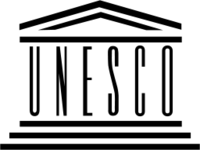UNESCO Report: 264 Million Children and Youth Not Attending School

Governments around the world have committed to achieving the Sustainable Development Goals (SDGs) by the year 2030. The Agenda aims to ‘ensure inclusive and equitable quality education and promote lifelong learning opportunities for all’. Responsible for implementing this goal is UNESCO, whose Global Education Monitoring Report appears annually.
Many children worldwide have no opportunity for education. This conclusion emerged from the 2017 Global Education Monitoring Report, ‘Accountability in Education’, by the UN organisation UNESCO. According to the report, 264 million children and youth between the ages of 6 and 17 do not go to school at all and have no access to education. The causes vary widely, from children not attending school because they have to work to countries that lack an organised education system altogether.
The analysis concludes that between 2010 and 2015, only 83 per cent of schoolchildren from 6 to 11 years old completed primary school. At the lower secondary level, with youth between the ages of 12 and 14, the completion rate sinks to 69 per cent. And of students at the upper secondary level between the ages of 15 and 17, only 45 per cent graduate.
‘Educational systems around the world should be designed with equity and quality in mind’, argues Walter Hirche, chairman of the German UNESCO Commission. However, the Global Education Monitoring Report shows that this goal still lies far in the future.
For educational failures, blame usually goes to the teachers. According to Hirche, root causes should be sought in the education systems themselves. UNESCO calls on governments to invest more: On average, countries currently spend 4.7 per cent of their GDP or 14.1 per cent of public funds on education. UNESCO estimates that equitable, quality education worldwide would require an additional 39 billion US dollars.
Editorial staff (alb)
Sources
Image: UNESCO logo / CC-0
Reference: Unesco; Der Spiegel, 24 October 2017